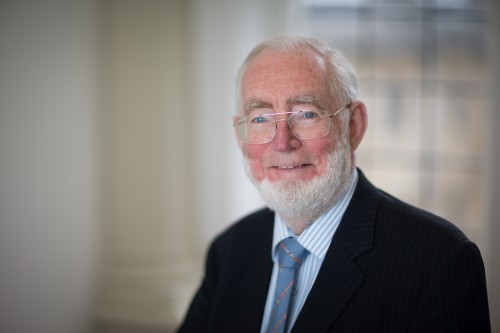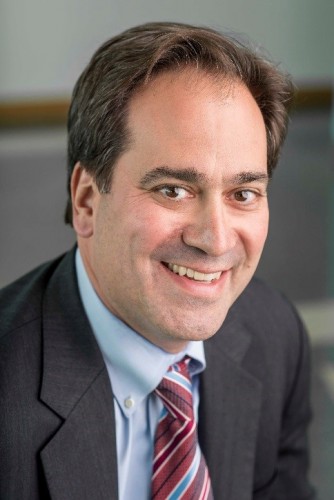This year, the prize will be awarded to a record number of three women in the field of social history.

The chairman of the Dan David Foundation, Prof. Itamar Rabinovitch, and the president of Tel Aviv University, Prof. Yosef Klefter, will announce the winners of the Dan David Prize for 2016 this evening (Thursday) at Tel Aviv University. Among the winners: three historians and six researchers in the fields of nanoscience and the struggle in poverty
The Dan David Award is an international award given in Israel every year to people for their contribution to society and the community, who have demonstrated excellence and made an extraordinary contribution to humanity. Every year, the Dan David Prize gives out three prizes totaling three million dollars in the three dimensions of time: past, present, and future. The prize will be awarded to the winners in a festive ceremony expected to be held in May. The prize, given for the 15th year, is named after the Jewish businessman Dan David, who passed away in 2011. In addition, every year the Dan David Prize awards scholarships to students in the doctoral and post-doctoral stages from Israel and the world.
In the area of the fight against poverty, which represents the present dimension, three economists will share the award: Prof. Sir Anthony Atkinson, Prof. Francois Bourguignon and Prof. James Hackman. Atkinson is considered a leading researcher in the fields of poverty and equality focusing on social justice and public policy planning. Atkinson is considered to be involved in the determination of public policy on equality issues in several rich European countries. Bourguignon also researches the issues of poverty and equality, who leads the world in integrated thinking on the issues of economic growth, equality and poverty, "his work of worldwide importance" is written in the reasons for the selection. Heckman, winner of the Nobel Prize in Economics, has been dealing over the years with the issue of early childhood development and his work emphasizes the importance of education, nurturing and concern for the child's well-being. "There is no doubt that Prof. Heckman's findings will influence the global discourse on global poverty," the reasons for the award read.

In the field of nanoscience, which represents the dimension of the future, three researchers who brought about significant breakthroughs in the field in recent years were awarded: Prof. Paul Alioistos, Prof. Chad Mirkin and Prof. Sir John Pendry. Alioistos is one of the founders of the field of nanoscience and a pioneer in the field of nanotechnology. His inventions in this field enabled the discovery of many cellular structures and are applied in a large number of biomedical applications. Mirkin is a chemist with an international reputation who developed methods for controlling nanomolecular sensors used in the world of biomedicine, "his innovations changed the basic thinking about the possibilities of creating new technologies for the welfare of the human race," the reasons for the win state. Pendri, the third winner in this field, specializes in the field of electromagnetism. In his research he created a new type of materials called 'metamaterials'. The technology he developed allows the object to be invisible to parts of the spectrum and thus it is possible to actually produce "perfect lenses", with a resolution limited only by the quality of production.
In the field of social history, a record number of three researchers were awarded this year: Prof. Inga Kalendinen, Prof. Arlette Farge and Prof. Catherine Hall. In the reasons for the award, Kalendinan was described as "an exceptional historian, her innovative work excels in an inclusive and global vision". Her research deals with the Holocaust and the suppression of the Mayan populations and discusses the cultural origins of the violence and its results. Farage's research deals with women's history, urban history and the history of crime and fighting it. Hall is considered one of the pioneers in the study of gender history, the study of race and slavery. Hall was personally involved in movements and struggles for women's liberation.
Last year, the Dan David Prize was awarded to Wikipedia founder Jimmy Wells in the information revolution category, to Prof. Peter Brown and Prof. Alessandro Portali in the historians and their sources category, and three researchers were awarded in the bioinformatics category: Prof. Michael Waterman, Prof. David Hausler and Prof. Cyrus Chotia. Other past winners of the Dan David Prize include former US Vice President Al Gore, former British Prime Minister Tony Blair, filmmakers the Cohen brothers, cellist Yo Yo Meh, conductor Zubin Mehta and writer Amos Oz.

2 תגובות
Danish,
Why just develop a water additive that reduces childbirth in poor areas? Why stop at lowering the birth rate? If you don't want poor people, let's just lock them all up somewhere and kill them, then there won't be any more poor people.
Do you understand what is problematic in what you wrote?
Eradication of poverty = less poor, less poor = less birth for those who are already poor. Not to worry about the children's well-being or more hospitals or more food that will indirectly encourage more births and more poor people.
It is clear to everyone that the development of a water additive that reduces births in poor areas (if distributing free condoms is not effective enough) would probably solve the problem of poverty much faster and with much less money and discussions than what is happening today.
The problem is that the world does want them to be poor because the exploitation of the poor and the weak is the basis of the economic theory prevalent today. Without poor people who can be exploited, how will they produce all the raw materials and consumer products that the rich in the western world need and cheaply?
Guess who finances all the research and who distributes the prizes, and you won't have any trouble guessing why they receive prizes for encouraging global discourse on the problem of poverty and not for the solution...